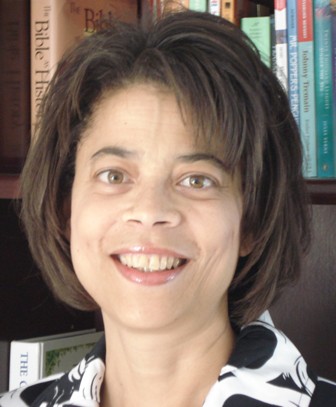




A couple of months ago I wrote an article entitled The Strong Moral Argument. The purpose of the article was to establish effective communication strategies when presenting your case to a public body or other group you are attempting to influence. As I am an advocate for exemplary educational opportunities, and have a preference for home school and private school education for the more individualized instruction that can be given, I am continually on the lookout for schools and programs about which I can write. I found DFW Speech & Debate and contacted Suzanne Nasser, the organization's founder and director. Suzanne has served the middle and high-school community the past 8 years as coach, author, speech/debate club leader, and tournament coordinator. She is the founder of Veritas Communications club and co-founder/director of the Southlake Speech & Debate Club, where she helps students sharpen their thinking and speaking skills through speech and debate training. Suzanne was very busy getting her students ready for debate competitions, but she graciously provided time to answer my questions about the importance of debate and her involvement in coaching students to be proficient in it.
Chuck: What are the most difficult things you face with students who enter this program?
Suzanne: Helping our students overcome the fear of public speaking. To that end, our instructors use fun exercises and games to break students out of “the box” that inhibits their expression. As students emerge out of their shells, they can grow into confident public speakers that use their thinking and speaking skills to command the attention of an audience.
Chuck: Do your students tend to parrot their parents’ positions on major topics of the day without really articulating their own beliefs in those major topics?
Suzanne: Initially, some students do have the tendency to merely recite the opinions of parents and others without truly examining the merits of those opinions for themselves. The core of our mission is to help students come to understand for themselves what they believe and why. Only then will they have the fortitude to confidently defend their beliefs amidst attack.
Chuck: How would you define a Christian worldview?
Suzanne: A Christian worldview is an outlook on reality that is fundamentally informed by the central truth of the Gospel. As C.S. Lewis stated in Mere Christianity, “I believe in Christianity as I believe that the sun has risen: not only because I see it, but because by it I see everything else." A Christian worldview filters the barrage of information from the world through the lens of Scripture as a means of critical evaluation. A Christian worldview is one that is wholly permeated by the Veritas of God.
Chuck: How would you define a secular worldview?
Suzanne: A secular worldview is one that unsuccessfully seeks to make sense of the world in a religious vacuum. A secular worldview dismisses God yet still tries to operate under the vestiges of some moral parameters. Ultimately, this view fails because God is the touchstone for all moral coherence and a life without Christ is a life without meaning. “For the wisdom of this world is foolishness with God” - 1 Corinthians 3:19. The only true source of order and purpose in the universe is found in a life lived for Christ.
Chuck: How is your program different to one offered by a typical suburban high school?
Suzanne: DFW Speech & Debate is dedicated to helping students sharpen their thinking and speaking skills. We believe that students with the thinking skills to filter and discern the messages they are bombarded with in our culture, are better equipped to stand strong when challenged by opposing worldviews. DFW Speech & Debate seeks to develop intelligent, winsome, well-spoken defenders of truth in a world that so desperately needs them. As a result, we do not train students to smother opponents with hundred mile-per-hour barrages of evidence, but with well-reasoned, articulate persuasion.
Chuck: How do you train a student to communicate his or her position confidently while not coming across as arrogant?
Suzanne: The fine line between confidence and arrogance is one that a student learns to walk through experience. We remind students that speech and debate is not an exercise in self-glorification, but a training ground for developing skills with which to advance the Kingdom of God. Ultimately, the feedback of judges from across the community helps students adopt a tone that is humble and persuasive.
Chuck: How has political correctness impacted clarity in communication today?
Suzanne: Political correctness can often obscure lurking messages beneath seemingly benign rhetoric. For example, phrases like “reproductive justice” often serve as euphemists for the pro-abortion agenda. At DFW Speech & Debate, we train our students to identify the underlying ideology behind the positions expressed by their opponents, to expose the ultimate values at issue in a particular case. Respectful but clear communication is the most effective and productive method of discourse.
Chuck: Cities are diverse places in terms of race, socio-economic status, religion, sexual preferences and other characteristics. If a student is well trained by your program how are they capable of rising to the top of economic, social and political power in a community where most people are not similarly educated and may be antagonistic to the views that your students are trained to defend?
Suzanne: As Paul said in 1 Corinthians 9, “I have become all things to all men.” As they debate at tournaments with judges from varying racial, political, and religious backgrounds, students must become skilled at presenting arguments in a way that carries broad appeal. As students dive deeply into the topics that they speak and debate on, they are equipped with the information requisite to do just that.
Chuck: When someone else does not accept that there is a standard for truth, how do you convincingly win a debate?
Suzanne: At a fundamental level, everyone believes in something. Everyone has an outer boundary on what conduct he or she deems permissible. A person might posit that human rights do not exist, but if you steal his wallet or threaten his family, he will certainly object. Ultimately, it is impossible to live in a world devoid of any absolute truth. After all, the very phrase “there are no absolutes” is, itself, an absolute! A debate with a person who does not accept a standard for truth must begin here. In the end, the victory comes by revelation of the Holy Spirit. The debate simply exposes the flaws in the reasoning put forth.
Chuck: What do you consider to be the elements of a persuasive speech or delivery?
Suzanne: In the Aristotelian tradition, DFW Speech & Debate teaches that there are three elements of persuasion: Ethos, Pathos, and Logos. Ethos refers to credibility, Pathos refers to emotional appeal, and Logos refers to the strength or reasonableness of the argument itself. All three elements are essential to persuasion.
Chuck: How did you get the name Veritas?
Suzanne: Veritas Communications Club started as a ministry of DFW Speech & Debate. I named it Veritas because it is the Latin word for the central pursuit of the club: truth. Veritas seeks to cultivate communicators who know God’s truth and defend it with passion and eloquence.
Chuck: How has the Hegelian Dialectic aided relativism over truth?
Suzanne: Hegel’s Dialectic holds that truth is found in the mean between two extremes. For example, Christian morality and secular values might be antitheses that merge to form a new thesis somewhere between the two. That moral mixture will then become a new thesis which is merged with its antithesis and the process continues, ad infinitum. The problem with this view is that it holds truth to be dynamic and ever-changing to accommodate the tides of worldly thought. Instead, truth is absolute, built on the rock of God’s Word. The God who is the same yesterday, today, and forever.
Chuck: You state in your article “Christopher Hitchens…eloquently communicated the message of atheism with witty, persuasive charm…” Given the power of media in our world, does that mean that a Christian must be witty and charming in order to elevate his or her chances of winning a debate?
Suzanne: I wouldn't say that it is a necessity for them to be witty and charming, but as they engage their culture, it is necessary that their arguments be compelling and persuasive. Hitchens was confrontational in his style, telling stories about Mother Theresa. His delivery was very striking and compelling. His opponent's case would have been more compelling if he had countered his points by sharing the life-changing influence that Mother Theresa had on others, in lieu of depending upon intellectual and scientific arguments.
Chuck: When are there two sides to every issue?
Suzanne: I will say that there are always different perspectives on every issue. In addition to training our students to research and gather statistics to craft points and counter arguments, we also help them to hone their thinking skills. They need well-honed thinking skills in order to identify and expose the underlying premises and assumptions behind ideas. As we teach students to question the mindset behind policy changes, and to examine the underlying assumptions behind the positions of others, and to take arguments to their logical extreme to expose faulty reasoning, they are better equipped to filter the ideas that they are bombarded with in our culture. For example, when arguing the pros and cons of US ratification of the START treaty, rather than just countering the points in favor of the treaty, our students are also trained to expose and contest the underlying agenda behind the treaty (i.e. nuclear disarmament) and ramifications of total US disarmament.
Debate training is valuable in helping students sharpen their thinking skills, however, this training must be coupled with the daily study of God’s Word (Truth). In the same way that government agents carefully study authentic monetary currency to detect the counterfeit, careful study of God’s Word is necessary to detect counterfeit philosophies that are masked as truth.
Victorious Debate
Posted: May 1, 2012 by Chuck DeShazo
